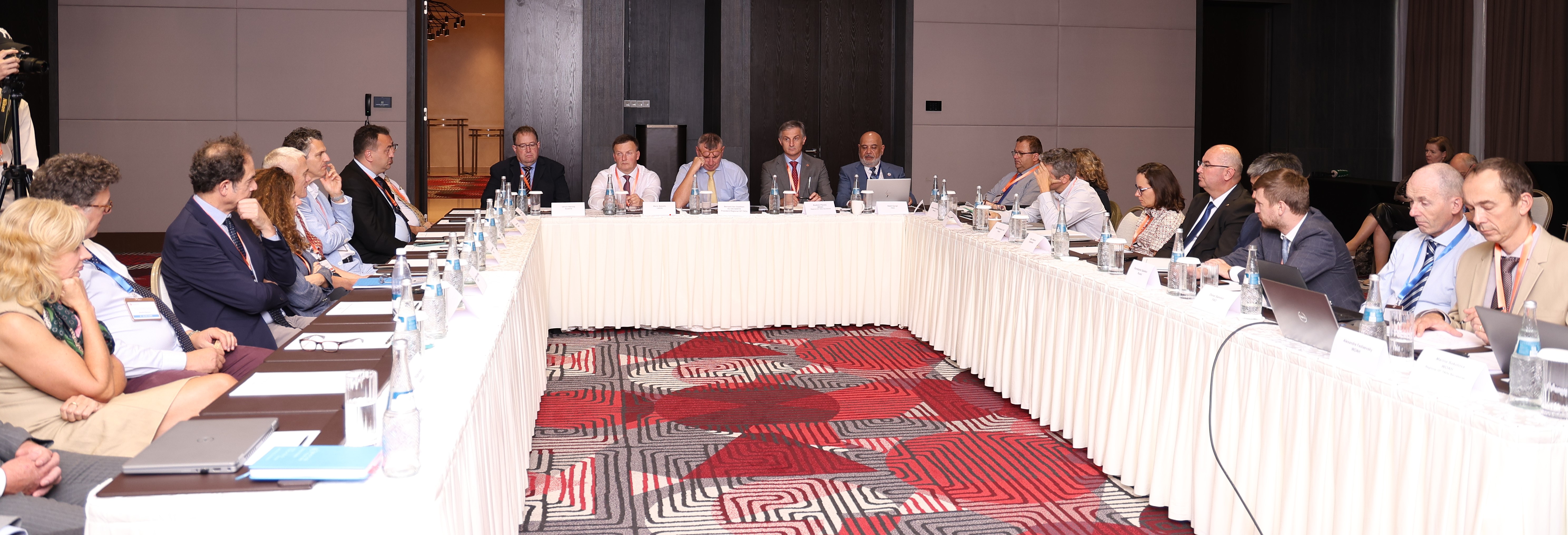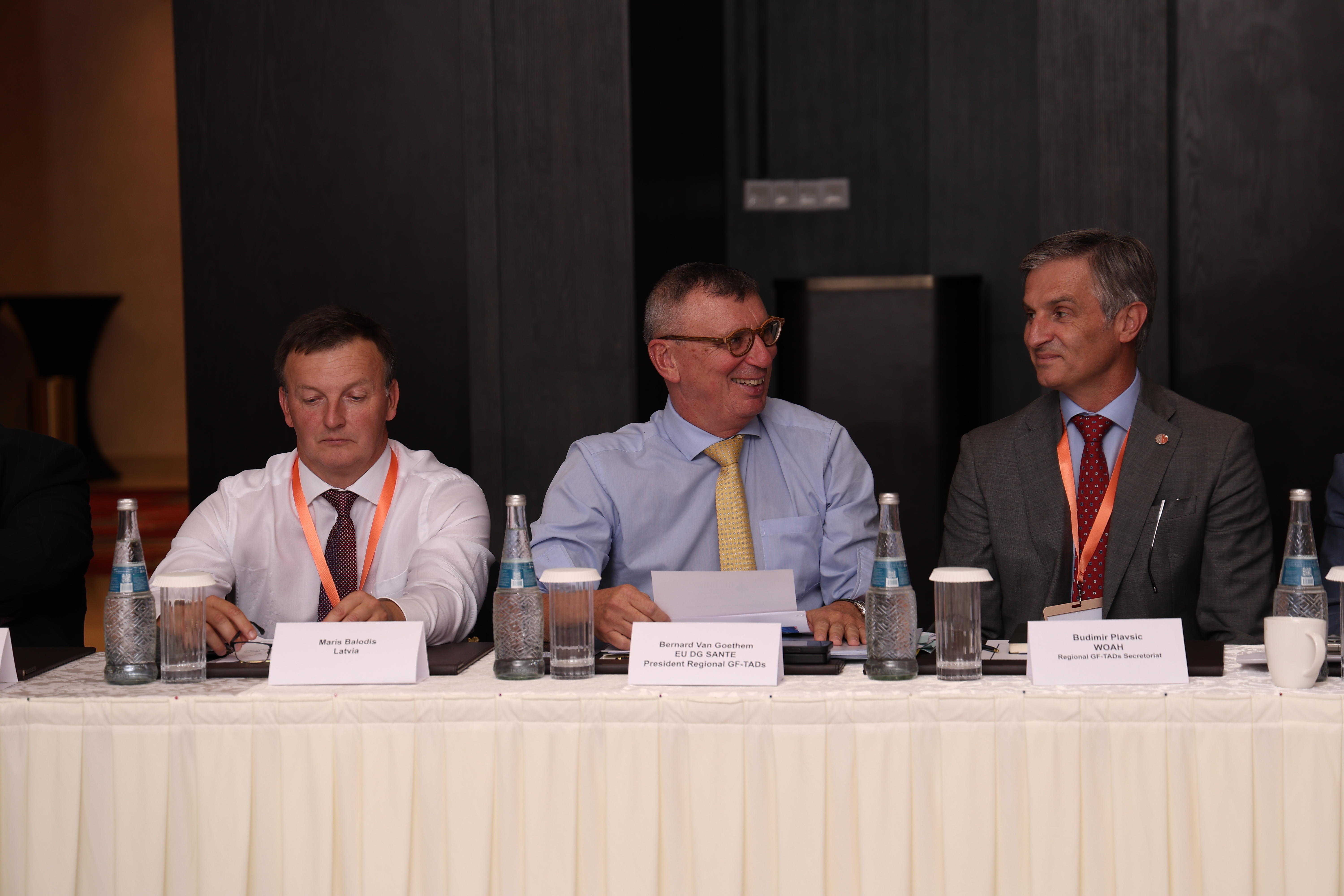The 11th meeting of the Permanent Regional Steering Committee (RSC-11) of the Global Framework for the Progressive Control of Transboundary Animal Diseases (GF-TADs) for Europe, held in Samarkand, Uzbekistan, on 1-3 October, addressed ongoing challenges and strategies related to transboundary animal diseases (TADs) in Europe and Central Asia. The meeting brought together representatives from the World Organization for Animal Health (WOAH), the Food and Agriculture Organization of the United Nations (FAO), the European Commission (DG SANTE) and Member States.
Key themes:
Key outcomes:
Concluding remarks:. The meeting highlighted the continuing challenges of TAD in Europe and Central Asia and the need for coordinated, collaborative and innovative solutions within the GF-TAD framework. The commitment of organisations such as FAO and WOAH, together with the active participation of Member States and resource partners, is essential for effective disease prevention and control. The new composition of the Regional Steering Committee for Europe will be dedicated to continuing to improve the management of the GF-TADs mechanism in Europe, which has proven to be one of the examples of best practice at global level, in order to support Members and their veterinary services.

